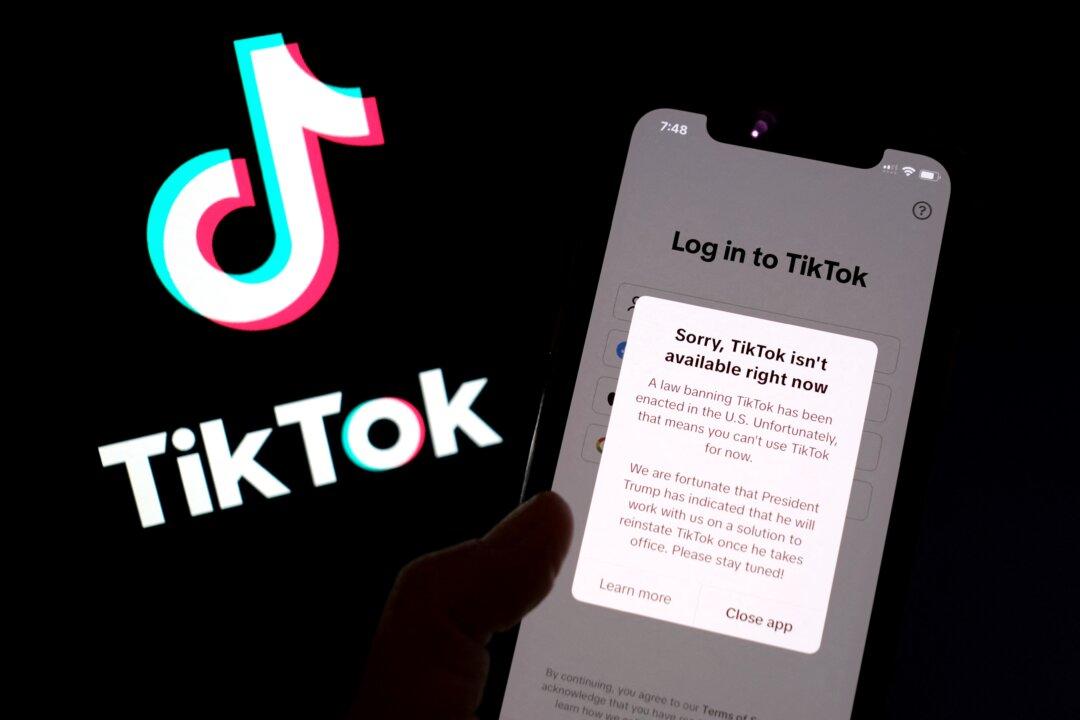The TikTok social media platform became unavailable in the United States on the night of Jan. 18 before a federal ban on the Chinese-owned short-video app took effect. The app has also disappeared from app stores.
“A law banning TikTok has been enacted in the United States,” a message on the app states.





